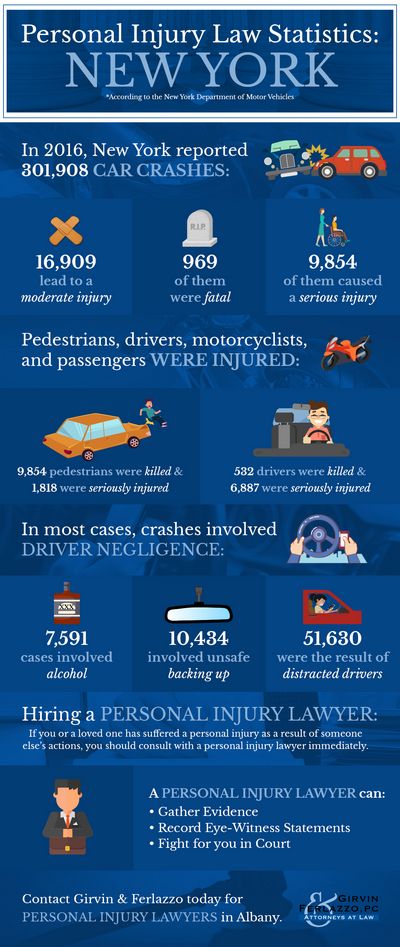
Personal injury attorneys wear many hats – and you’ll be glad they do if you find yourself in need of an accident lawyer
How can a personal injury lawyer help?
Lawyers generally show up on the worst day of a person's life.
Your wounds may may not have even dried before you start getting calls, requests and bills from insurance companies, doctors, police and others. At such a time when you should be focusing on healing and recovery, you may be feeling completely overwhelmed and stressed wondering how you are going to pay for everything.
This is when a personal injury lawyer can help.
A personal injury lawyer helps individuals who have sustained injuries in accidents to recover financial compensation. These funds are often needed to pay for medical treatment, make up for lost wages, pain and suffering, and provide compensation for injuries suffered.
Personal injury attorneys specialize in tort law, which covers all civil litigation for injuries or wrongdoings resulting from negligence. The main goal of personal injury lawyers who practice tort law is to make their client (the injured “plaintiff”) whole again and discourage others from committing a similar offense.
Common examples of personal injury practice areas include motor vehicle accidents, slip and fall accidents, defective products, workplace injuries and medical malpractice.
Basics of personal injury law
A personal injury lawyer performs many important duties. These common functions include:
- Explains your rights
A personal injury lawyer can explain how an accident and different legal issues affect a person's rights. Different states have different laws pertaining to the statutes of limitations or how comparative negligence affects a case.
(To answer your question, the statute of limitations imposes time limits for when a lawsuit must be filed. Comparative negligence rules determine whether a person can sue if he was partially to blame for the accident and how much he can recover.)
- Provides advice
A personal injury attorney can walk a client through the system with the finesse of a professional tour guide. They help you understand complicated legal procedures, interpret medical and insurance jargon, and get through the maze of paperwork required in personal injury cases.
One common piece of advice is not to provide a statement to the other driver's insurance company since it will simply look for ways to deny liability. An injury lawyer may also recommend seeking medical treatment to document the relationship between the accident and the injury.
A personal injury attorney also provides you objective opinions about your case so that you can make the best possible decision that aren’t clouded by fear, anger, frustration, stress and other emotions many injury victims understandably experience.
- Represents in court
Most personal injury cases do not result in a trial; the vast majority is settled even before a lawsuit is filed.
However, if the insurance company denies the claim, it's possible that the only way for the victim to recover is by going through a full civil trial.
Litigation is complex and requires close adherence to proper procedures and rules of evidence. This is not a task best handled by a novice.
Some surprising ways you didn't know a personal injury lawyer could help you
Lawyers do have skills, you know. There are some great ways they can help:

- Completes a professional investigation
Personal injury firms may have their own investigators document the scene of an accident, interview witnesses and develop theories about how the incident occurred. These might be professional investigators or even retired cops working a new job.
Outside experts such as accident reconstruction experts may be necessary if the cause of the accident is in dispute. Your attorney will have a dedicated roster of professionals he or she normally uses and will know who can assist.
- Connects with medical providers
A personal injury lawyer may have a business relationship with a medical professional who may agree to provide medical services in favor of a lien on any future settlement or judgment.
They may also have greater experience in understanding serious injuries and may recommend a particular specialist who has provided superb results in previous cases.
- Better assesses damages
Many accident victims only think about the immediate impact of an accident. After all, they could be receiving harassing phone calls from bill collectors, making up funds after being off work for a few weeks and may need to repair their vehicle to get back on the road.
However, a personal injury lawyer deals with these cases on a routine basis and can help identify a more accurate estimate of the real and long-term effect of injuries, such as a loss in earning capacity if the accident left the victim disabled. A personal injury lawyer may also ask an economist or actuary for help in assessing the lifetime impact of an accident.
- Works through a variety of legal processes
A personal injury lawyer can help in a number of different judicial forums. For example, he or she may help with informal negotiation with the insurance company before or after a case is filed in court.
Alternatively, they may help litigate a case if the settlement offer is not satisfactory to the client or the claim is denied. However, personal injury lawyers can also help in other types of forums such as alternative dispute resolution.
Arbitration may be required if the victim's own insurance company is involved. This involves presenting a case in front of a neutral arbitrator who makes a binding decision. Mediation consists of the victim and the person responsible for the injury working together to reach a solution out of court with the help of a third-party neutral. (See more on mediation and arbitration.)
When you need a lawyer… and when you don't
Surprisingly, not every case requires the use of a lawyer.
If the damages are minimal, there is no serious injury and the settlement offer appears reasonable, providing a significant portion of the settlement to an attorney may not make sense.
However, sometimes cases that seem simple at first may become more complicated, which may be best handled by hiring an experienced personal injury lawyer.
For example, someone's insurance may not have been in effect at the time of the accident or an injury might not reveal itself as chronic until months after the accident. Some key times to hire a personal injury lawyer include when:
- The claim is denied
If you know that the other party was responsible for the accident but the insurance company does not want to take responsibility, it is important to talk to a lawyer to get an objective and experienced opinion. - Multiple parties may be involved
In some cases, accidents might involve multiple vehicles or parties. This often complicates things.
This can occur if there was a multi-car pileup or a situation involving contractors, subcontractors and employees. A personal injury lawyer can help identify all parties that may share liability in the case and who may be named as defendants.
- A settlement is offered
It is often worth the time and money to consult with a personal injury lawyer before accepting a settlement. Insurance companies may try to get rid of cases as quickly as possible to minimize the payout since they represent their client's financial interests.
Very often, the first offer is a low-ball offer that they hope the victim will accept. A personal injury lawyer can determine whether an offer seems fair.
Similar articles
-
What does a Personal Injury Lawyer Do and Why is it Beneficial to Hire One?
A personal injury lawyer is someone who provides legal representation to individuals who have been injured in an accident. Personal injury lawyers work…
-
Everyone is injured at some point; it s a fact of life. However, when the injury you ve sustained isn t your fault, it s only fair that you shouldn t…
-
5 Tips for Choosing the Right Personal Injury Lawyer
As scary as it is to admit, you never know when you will need a personal injury lawyer. Nobody ever thinks they will find themselves in a scenario that…